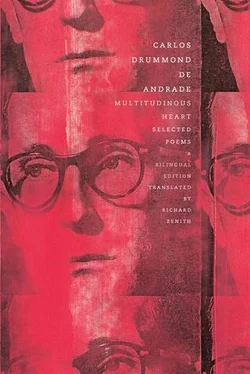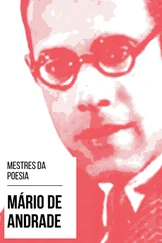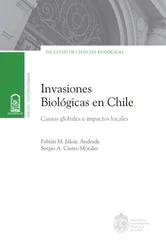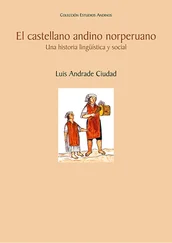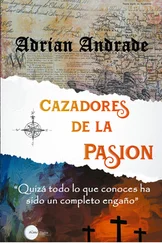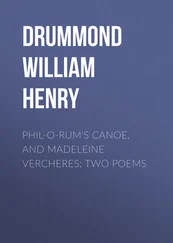And does the devil know?
What makes man think
he’s a destiny, or origin?
What miracle is man?
What dream, what shadow?
But does man exist?
LIÇÃO DE COISAS / LESSON OF THINGS (1962)
Os amantes se amam cruelmente
e com se amarem tanto não se veem.
Um se beija no outro, refletido.
Dois amantes que são? Dois inimigos.
Amantes são meninos estragados
pelo mimo de amar: e não percebem
quanto se pulverizam no enlaçar-se,
e como o que era mundo volve a nada.
Nada, ninguém. Amor, puro fantasma
que os passeia de leve, assim a cobra
se imprime na lembrança de seu trilho.
E eles quedam mordidos para sempre.
Deixaram de existir, mas o existido
continua a doer eternamente.
Lovers love each other cruelly
and love too much to see each other.
They kiss, in the other, their own reflection.
What are two lovers? Two enemies.
Lovers are children spoiled rotten
by love’s delights: they don’t realize
how they crumble with each embrace,
and how what was world turns into nothing.
Nothing, nobody. Love’s a pure phantom
that lightly passes over them,
like a snake imprinting its path on memory.
And they both remain forever bitten.
They’ve ceased to exist, but what existed
continues to ache eternally.
Os cacos da vida, colados, formam uma estranha xícara.
Sem uso,
ela nos espia do aparador.
The shards of life, glued together, form a strange teacup.
Unused,
it quietly observes us from the sideboard.
O marciano encontrou-me na rua
e teve medo de minha impossibilidade humana.
Como pode existir, pensou consigo, um ser
que no existir põe tamanha anulação de existência?
Afastou-se o marciano, e persegui-o.
Precisava dele como de um testemunho.
Mas, recusando o colóquio, desintegrou-se
no ar constelado de problemas.
E fiquei só em mim, de mim ausente.
A Martian ran into me on the street
and recoiled at my human impossibility.
How, he wondered, can there be a being
who so negates existence in the act of existing?
The Martian walked off, and I followed.
I needed him as a kind of proof.
But he refused to talk, vanishing
into the problem-studded atmosphere.
And I was left by myself, absent from myself.
A FALTA QUE AMA / THE LOVING ABSENCE (1968)
No caminho onde pisou um deus
há tanto tempo que o tempo não lembra
resta o sonho dos pés
sem peso
sem desenho.
Quem passe ali, na fração de segundo,
em deus se erige, insciente, deus faminto,
saudoso de existência.
Vai seguindo em demanda de seu rastro,
é um tremor radioso, uma opulência
de impossíveis, casulos do possível.
Mas a estrada se parte, se milparte,
a seta não aponta
destino algum, e o traço ausente
ao homem torna homem, novamente.
On the road where a god walked
so long ago time has forgotten it
the dream of the god’s feet lingers
weightless
traceless.
Whoever goes that way becomes,
in a twinkling, a god unawares, a hungry
god, wistful for existence.
He keeps on, searching for his ancient
trail, a glowing tremor, a wealth
of impossibilities, cocoons of the possible.
But the road divides into a thousand roads,
the arrow points
nowhere, and the vanished trace
turns man once more into man.
Uma canção cantava-se a si mesma
na rua sem foliões. Vinha no rádio?
Seu carnaval abstrato, flor de vento,
era provocação e nostalgia.
Tudo que já brincou brincava, trêmulo,
no vazio da tarde. E outros brinquedos,
futuros, se brincavam, lecionando
uma lição de festa sem motivo,
à terra imotivada. E o longo esforço,
pesquisa de sinal, busca entre sombras,
marinhagem na rota do divino,
cede lugar ao que, na voz errante,
procura introduzir em nossa vida
certa canção cantada por si mesma.
A song was singing to itself
on a street without revelers. The radio?
Its abstract, wind-borne carnival
stirred excitement and nostalgia.
All that ever danced was dancing
in the empty afternoon. And other,
future dances danced, teaching
the unmotivated earth that feasting
needs no motive. And the long struggle,
the search for signs, the quest among shadows,
the doubtful voyage toward the divine,
all yields to what, in a roving voice,
a certain song that sings itself
seeks to bring into our life.
Todos os meus mortos estavam de pé, em círculo,
eu no centro.
Nenhum tinha rosto. Eram reconhecíveis
pela expressão corporal e pelo que diziam
no silêncio de suas roupas além da moda
e de tecidos; roupas não anunciadas
nem vendidas.
Nenhum tinha rosto. O que diziam
escusava resposta,
ficava parado, suspenso no salão, objeto
denso, tranquilo.
Notei um lugar vazio na roda.
Lentamente fui ocupá-lo.
Surgiram todos os rostos, iluminados.
All my dead were standing in a circle,
with me in the middle.
None had a face. I recognized them
by their body language and by what they said
in the silence of their clothes beyond fashion
and fabrics — clothes neither advertised
nor sold.
None had a face. What they said
needed no answer,
hovering in the room as a peaceful,
dense object.
I noticed an empty spot in the circle.
I slowly went and filled it.
All the faces lit up, visible.
AS IMPUREZAS DO BRANCO / IMPURITIES OF WHITE (1973)
Peço desculpa de ser
o sobrevivente.
Não por longo tempo, é claro.
Tranquilizem-se.
Mas devo confessar, reconhecer
que sou sobrevivente.
Se é triste/cômico
ficar sentado na plateia
quando o espetáculo acabou
e fecha-se o teatro,
mais triste/grotesco é permanecer no palco,
ator único, sem papel,
quando o público já virou as costas
e somente baratas
circulam no farelo.
Reparem: não tenho culpa.
Não fiz nada para ser
sobrevivente.
Não roguei aos altos poderes
que me conservassem tanto tempo.
Não matei nenhum dos companheiros.
Se não saí violentamente,
se me deixei ficar ficar ficar,
foi sem segunda intenção.
Largaram-me aqui, eis tudo,
e lá se foram todos, um a um,
sem prevenir, sem me acenar,
sem dizer adeus, todos se foram.
(Houve os que requintaram no silêncio.)
Não me queixo. Nem os censuro.
Decerto não houve propósito
de me deixar entregue a mim mesmo,
perplexo,
desentranhado.
Não cuidaram de que um sobraria.
Foi isso. Tornei, tornaram-me
sobre-vivente.
Se se admiram de eu estar vivo,
esclareço: estou sobrevivo.
Viver, propriamente, não vivi
senão em projeto. Adiamento.
Calendário do ano próximo.
Jamais percebi estar vivendo
Читать дальше
